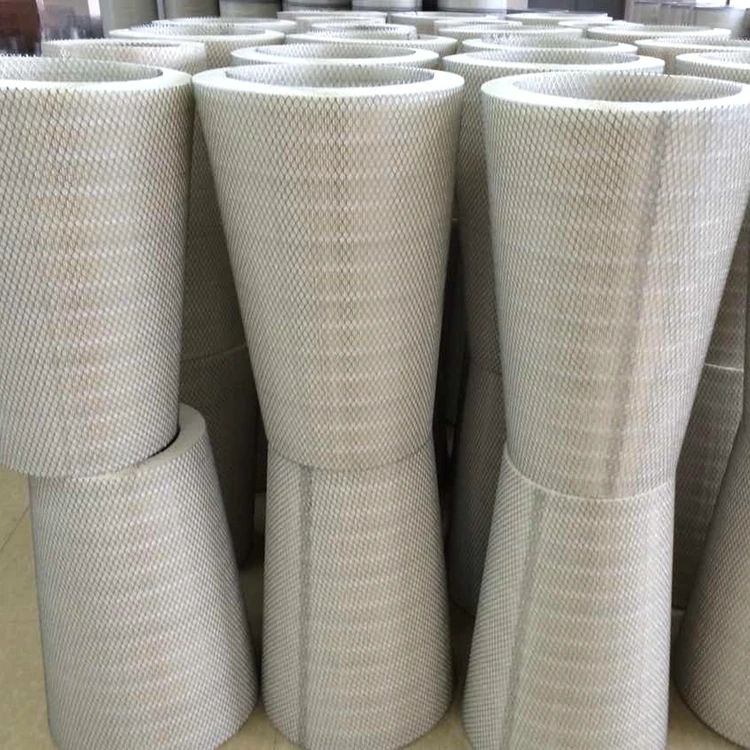 Tel:
+8615930870079
Tel:
+8615930870079
Dhj . 31, 2024 15:56 Back to list
High Performance Sintered Metal Filter Cartridges for Efficient Filtration Solutions
Sintered Metal Filter Cartridges A Comprehensive Overview
Sintered metal filter cartridges have emerged as a preferred solution in various industries for efficient filtration processes. These cartridges are made from metal powders that undergo a sintering process, which involves heating them to a temperature below their melting point. This process fuses the particles together, forming a solid structure with microscopic pores that effectively filter out impurities while allowing fluids to pass through.
The Manufacturing Process
The production of sintered metal filter cartridges begins with the selection of appropriate metal powders, commonly stainless steel, aluminum, or bronze. These powders are then compacted into a desired shape and subjected to high temperatures in a controlled environment. The sintering process not only increases the strength of the structure but also creates a network of interconnected pores that are critical for filtration.
After sintering, the cartridges may undergo additional treatments such as surface finishing or coating to enhance their performance characteristics. The resulting product is durable, versatile, and capable of withstanding extreme pressures and temperatures, making it suitable for harsh industrial environments.
Key Advantages
1. Durability and Longevity One of the standout features of sintered metal filter cartridges is their robustness. Unlike their ceramic or polymer counterparts, these metal filters exhibit superior resistance to wear and tear, ensuring a longer service life. They can endure extreme temperatures and pressures, making them ideal for applications in oil and gas, chemical processing, and pharmaceuticals.
2. High Filtration Efficiency Sintered metal filters offer an impressive ability to filter out particulates ranging from microns to sub-microns. The unique porosity allows for high flow rates while maintaining optimal filtration efficiency. This characteristic is essential in environments where cleanliness is critical, such as food and beverage processing or medical applications.
sintered metal filter cartridge

3. Reusability and Easy Cleaning Unlike disposable filters, sintered metal cartridges can be cleaned and reused, promoting sustainability and reducing operational costs. Cleaning methods may include backwashing, chemical cleaning, or thermal treatment, depending on the types of contaminants and the filtration application.
4. Customization These cartridges can be designed to meet specific filtration needs by altering the pore size, material composition, and shape. This flexibility allows industries to tailor their filtration solutions to unique requirements, optimizing performance and efficiency.
Applications
Sintered metal filter cartridges find extensive applications across various sectors
- Oil and Gas In upstream and downstream processes, these filters are crucial for removing solid particulates from hydrocarbons, ensuring the integrity of pipelines and refining processes. - Chemical Processing The durability and chemical resistance of sintered filters make them an excellent choice for purifying corrosive reagents and by-products. - Pharmaceutical Industry To ensure the highest purity standards, sintered metal filters are commonly used for the filtration of active pharmaceutical ingredients and other critical fluids. - Food and Beverage Maintaining hygiene and quality is paramount in this sector, where sintered filters help in the removal of impurities from production processes.
Conclusion
Sintered metal filter cartridges represent a significant advancement in filtration technology, providing a combination of strength, efficiency, and reusability. Their capabilities make them indispensable in many industrial applications, contributing to enhanced performance and cost savings. As industries continue to seek more effective filtration solutions, the demand for sintered metal filters is poised to grow, solidifying their position as a cornerstone of modern filtration technology.
-
Nano Fiber Technology: Revolutionizing Cartridge Dust Collector FiltersNewsAug.06,2025
-
How Activated Carbon Air Cartridges Eliminate OdorsNewsAug.06,2025
-
Dust Filter Cartridge Handling Fine Particulate MatterNewsAug.06,2025
-
Cartridge Dust Collector Filter for Welding Fume ExtractionNewsAug.06,2025
-
Activated Carbon Filter Cartridge Effectiveness Against VOCsNewsAug.06,2025
-
Activated Carbon Air Filter Cartridge Benefits ExplainedNewsAug.06,2025

 Email:
Email:





